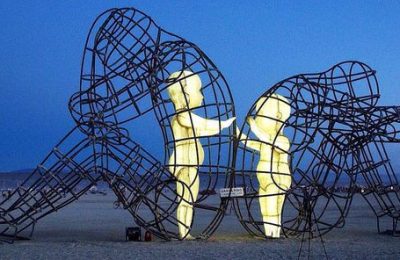 On the eve of 12/21/2012, I begin this series determined to define what will be different after what some have heralded as the end of the world, a zombie apocalypse, or perhaps even the birth of a new humanity has come and gone.
On the eve of 12/21/2012, I begin this series determined to define what will be different after what some have heralded as the end of the world, a zombie apocalypse, or perhaps even the birth of a new humanity has come and gone.
Like Y2K and other events that turned out to be much ado about nothing, December 21, 2012, the end of the Mayan calendar, could appear the same on the surface. But, below the surface, I can feel that something else is happening.
I’d like to share that with you. To bring it to your consciousness, so you can feel it too. I welcome you to share in the comments, what you can feel beneath the surface during this time of transformation, evolution, growth and shifting.
Let’s begin here.
A little more than a year ago, I met a woman who shared the essay below with me. Her name is Amber. I’m not clear if she wrote it or if it was something shared with her. When I asked her for more details, she didn’t respond. And now she’s disappeared. So, I’m sharing it with you here because I feel certain it came into my possession so it could be spread.
 It’s called the Great Flower Radiation and it illustrates clearly how rapidly things can change, when it is time, as so many believe it is now. Read it and imagine how it might apply to us, to you, to our transformation … now.
It’s called the Great Flower Radiation and it illustrates clearly how rapidly things can change, when it is time, as so many believe it is now. Read it and imagine how it might apply to us, to you, to our transformation … now.
It seems impossible now to imagine a world without flowers. 130 million years ago it would have taken an extraordinary feat of imagination to dream of even one – there were none. The planet existed in monochromatic hues of green, brown and blue.
In the blink of a Universal eye, flowers exploded into being with such speed and impact we now call it the Great Radiation. Suddenly, all the building blocks of the lifeblood of modern ecosystems and the font of untold inspiration appeared and prospered.
How were flowers able to so radically change the world they lived in so quickly and completely?
Flowers did not compete directly – but worked around the established environment; their unique design and attraction stood out in a uniform world; the incentives they offered were perfect for attracting collaborators in rapid expansion; and they experimented wildly, evolving in hyper drive. (Sound like anyone you know?)
 The ecosystems of 100 million years ago were filled with giant plants that dominated their surroundings and monopolised the resources needed for others to grow and create new frontiers. Flowers did not compete head on with these titans, instead they exploited the gaps and the margins, growing faster, seeding at their peak and evolving more rapidly. They exploited the small resources in a way that the giants could not – by being agile and concentrating in the spaces between what existed to establish an entry.
The ecosystems of 100 million years ago were filled with giant plants that dominated their surroundings and monopolised the resources needed for others to grow and create new frontiers. Flowers did not compete head on with these titans, instead they exploited the gaps and the margins, growing faster, seeding at their peak and evolving more rapidly. They exploited the small resources in a way that the giants could not – by being agile and concentrating in the spaces between what existed to establish an entry.
Though they had a good start, flowers remained restricted in scale. They were at first hindered by existing rules of propagation, relying on the same vectors as their giant neighbors- local reproduction or wind-blown chance.
Flowers could never have succeeded if they had tried to rely on what had always worked in the past; instead they would have to allow for something new. They would need to enlist the help of billions who would dedicate themselves to mutual success.
Enter the pollinators who could go from one flower to hundreds. Within the jungle of green, the first brightly collared petals exploded like fireworks. Petals, crazy colored beacons of possibility, served as irresistible beacons to participate in accelerating life-enhancing variety. The Great Radiation then truly began.
In addition to the promise of new possibilities, flowers offered their co-conspirators in expansion a reward: sweet, nourishing and seemingly limitless energy – nectar. Flowers gave, they got and the whole system flourished.
 Now the flowers had the agility to move anywhere, between and beyond existing growth; they and their pollinating partners experimented wildly, expanding and transforming rapidly in rush of accelerated evolution. The age of flowers changed relationships, brought new fuel and a new source of power into our world.
Now the flowers had the agility to move anywhere, between and beyond existing growth; they and their pollinating partners experimented wildly, expanding and transforming rapidly in rush of accelerated evolution. The age of flowers changed relationships, brought new fuel and a new source of power into our world.
Today, nineteen of every twenty plant species on our planet are flowering plants. This state change happened in what was, geologically speaking, a blink of any eye. Perhaps, just maybe, we are living in the midst of that blink ourselves right now. And you, my friend, are the wild, crazy, never before seen petal that is exactly what’s needed right now.
Ψ Ψ Ψ
The first Great Radiation took millions of years. The agricultural revolution took thousands of years. The industrial revolution took under two hundred years. The information and knowledge revolution transformed civilization in a few decades. Our next leap could take just a few years. Consider that we may now be entering – Humanity’s Great Radiation, where accelerated experimentation in knowledge and sustainable design flourishes across every area of civilization.
What is your role? How can you inspire the pollinators? Can you feel it? If so, shine your light and share with us here, in the comments, on Facebook, from the rooftops, tell everyone you know. More soon…
While you wait RSVP to join me on New Year’s Eve day …
![]()



7 Comments
Thanks for sharing this Alexis. I really enjoyed it 🙂 Happy solstice!
How inspiring! Thank you for sharing this- it puts perfect voice to the way I feel in the world. I welcome the pollinators.
Wow great post!
In Ascent of Humanity by Charlie Eisenstein, he suggests that of these movements since humans have been around have all been part of our collective adolescence, part of our growing up. We are maturing as an organism towards self realization, to know our place in the world, now that we have experimented with everything.
I totally agree that we are headed toward sustainability as our inevitable maturation. We have found our place in the world of life and it starts today. Happy Start of the New World.
LOVE this. It makes so much sense considering what I’m feeling as well. I do believe it’s time to shine and…as you say…pollinate with ideas that can bring even more beauty into the world. Thank you for sharing this, Ali. 🙂
This is an amazing article and I can feel it happening just as strongly as you do. I’m a 65 year old woman on the brink of my fifth career, with a book soon to be published and ready to attract the pollinators who understand the struggle so many of us have with self hatred and abuse. I want to help us all love ourselves. Thanks for sharing this article. I will share on Facebook as well.
This video shows some of the budding flowers of humanity (particularly in other countries) . Zeitgeist 2012-What We Searched For Online:
http://www.google.com/zeitgeist/2012/#the-world
Joshua
I love this article. I felt something deep within me when I read this article. For me, I believe that I’m already entering a shift of a mindset that is not worried about other people think and the can do attitude that comes along with it. I believe that there are people like you who will encourage me to fulfill my destiny.